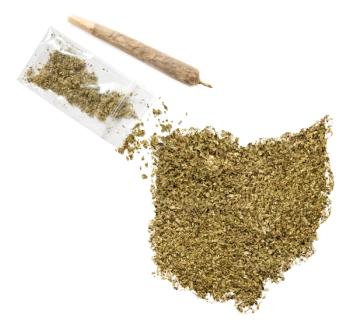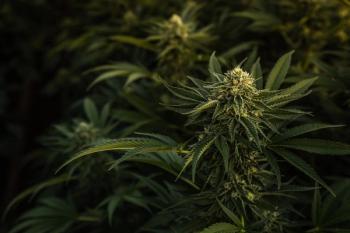
House Committee Approves Amendment to Regulate Synthetic Cannabinoids
The discussion surrounding intoxicating the manufacture and sale of hemp-derived cannabinoids continues with more proposals and challenges.
In mid-July 2024, in a House Agriculture Appropriations Committee meeting, an amendment to the Agriculture, Rural Development, Food and Drug Administration, and Related Agencies Appropriations Act for 2025 was approved that reportedly included language similar to the amendment presented by Illinois Representative Mary Miller on the 2024 Farm Bill (1,2). Part of the Farm Bill encompasses the definition of hemp and hemp-derived cannabinoids, some of which can be intoxicating, and have proliferated throughout the country, though they remain unregulated (2). “It’s a psychoactive substance, so we’ll continue to work on that. We do not want to harm the people who are the good actors, and most of them are the good actors,” stated Representative Andy Harris (2). “We’ll continue working on this and get the bad actors out, the ones who are not…converting some of that to delta-8, which is a dangerous substance.”
The original amendments to the 2024 Farm Bill were approved by the House Committee on Agriculture in May of this year (3). These new amendments proposed modifying the definition of hemp to include only naturally occurring cannabinoids and exclude synthetically derived cannabinoids while also halting the manufacture of natural hemp compounds (1,3). The previous version of the bill, approved in 2018, legalized hemp-derived products, as long as the hemp plant contained less than 0.3% tetrahydrocannabinol (THC) (3). The definition of hemp, as outlined in the 2018 Farm Bill version, inadvertently included psychoactive compounds such as Delta-8 THC and Delta-10 THC and resulted in a multibillion-dollar industry (1,3). Unlike the House Agriculture Appropriations Committee measure, measures in the 2024 Farm Bill would not take effect until late this year or early 2025 (2).
In response to the amendment approved by the House Agriculture Appropriations Committee, Representative Morgan McGarvey introduced amendments that would remove the limitations on manufacturing hemp and confirm states’ ability to enact and enforce their own regulations and laws on hemp (1). Several other representatives co-sponsored and supported the amendment (1).
“It’s refreshing to see members of Congress stand up to protect the regulated hemp industry that has helped farmers and small businesses over the past ten years,” stated Bret Worley, CEO of MC Nutraceuticals (1). “A special thanks to Representatives Nancy Mace, Morgan McGarvey, James Comer, Thomas Massie, Andy Barr, and Mark Pocan for their willingness to protect our thriving industry.”
If the House Agriculture Appropriations Committee measure is approved, a ban on the synthetic cannabinoids could begin in October 2024 (2).
References
- Hoban, R., Farm Bill Update: Regulated Hemp Vs. Intoxicating Marijuana—Mace And McGarvey Enter The Ring
https://www.forbes.com/sites/roberthoban/2024/07/28/farm-bill-update-regulated-hemp-vs-intoxicating-marijuana---mace-and-mcgarvey-enter-the-ring/ (accessed July 30, 2024). - HempToday, Federal ban on delta-8, other hemp-derived intoxicants could come as early as October
https://hemptoday.net/federal-ban-on-delta-8-other-hemp-derived-intoxicants-could-come-as-early-as-october/ (accessed July 30, 2024). - McEvoy, E. Amendment to 2024 Farm Bill Draft Would Affect Intoxicating Hemp-Derived Products
https://www.cannabissciencetech.com/view/amendment-to-2024-farm-bill-draft-would-affect-intoxicating-hemp-derived-products (accessed July 30, 2024).
Newsletter
Unlock the latest breakthroughs in cannabis science—subscribe now to get expert insights, research, and industry updates delivered to your inbox.





